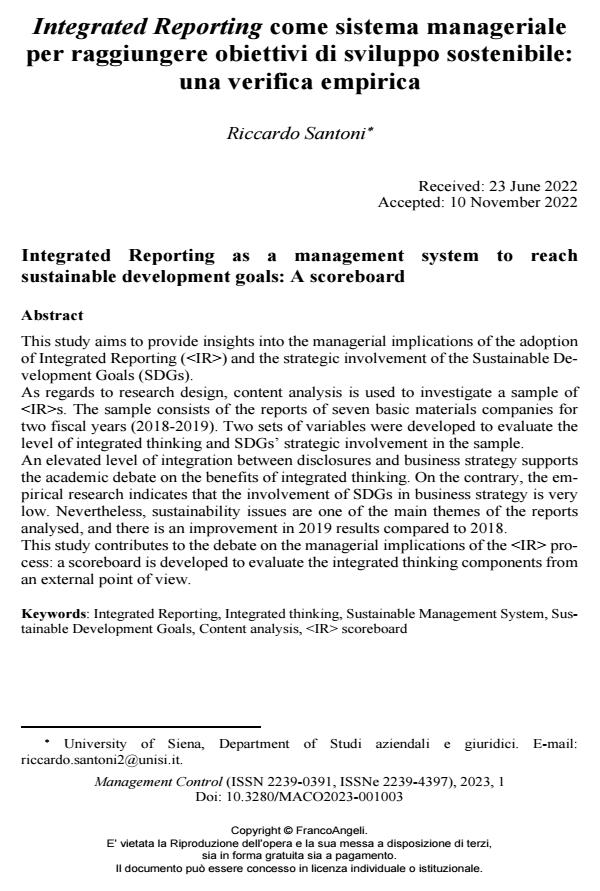Integrated Reporting as a management system to reach sustainable development goals: A scoreboard
Journal title MANAGEMENT CONTROL
Author/s Riccardo Santoni
Publishing Year 2023 Issue 2023/1
Language Italian Pages 26 P. 43-68 File size 360 KB
DOI 10.3280/MACO2023-001003
DOI is like a bar code for intellectual property: to have more infomation
click here
Below, you can see the article first page
If you want to buy this article in PDF format, you can do it, following the instructions to buy download credits

FrancoAngeli is member of Publishers International Linking Association, Inc (PILA), a not-for-profit association which run the CrossRef service enabling links to and from online scholarly content.
This study aims to provide insights into the managerial implications of the adop-tion of Integrated Reporting (
Keywords: Integrated Reporting, Integrated thinking, Sustainable Management System, Sus-tainable Development Goals, Content analysis, <IR> scoreboard
- Management Control System in Smart and Sustainable Firms Domenica Lavorato, pp.1 (ISBN:978-3-031-81435-8)
- Integrated Reporting as a managerial tool: The role of Integrated Thinking Anna Pistoni, Lucrezia Songini, in MANAGEMENT CONTROL 2/2025 pp.85
DOI: 10.3280/MACO2025-002005 - Means and Meanings in Circular Economy: An MDA-Based Exploratory Analysis Federico Barnabè, Riccardo Santoni, in Sustainability /2025 pp.7768
DOI: 10.3390/su17177768 - Performance management systems for sustainability in SMEs: An interventionist approach Alessandra Buonasera, Guido Noto, Carlo Vermiglio, in MANAGEMENT CONTROL 3/2024 pp.39
DOI: 10.3280/MACO2024-003003
Riccardo Santoni, Integrated Reporting come sistema manageriale per raggiungere obiettivi di sviluppo sostenibile: una verifica empirica in "MANAGEMENT CONTROL" 1/2023, pp 43-68, DOI: 10.3280/MACO2023-001003